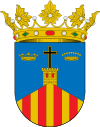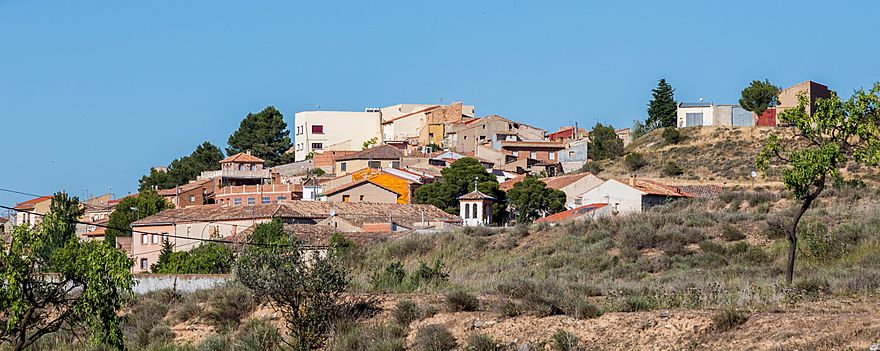Malon, Zaragoza facts for kids
Quick facts for kids
Malón, Spain
|
|||
|---|---|---|---|
|
|||
| Country | Spain | ||
| Autonomous community | Aragon | ||
| Province | Zaragoza | ||
| Comarca | Tarazona y el Moncayo | ||
| Area | |||
| • Total | 5 km2 (2 sq mi) | ||
| Population
(2018)
|
|||
| • Total | 323 | ||
| • Density | 65/km2 (167/sq mi) | ||
| Time zone | UTC+1 (CET) | ||
| • Summer (DST) | UTC+2 (CEST) | ||
Malón is a small municipality (a type of local government area) located in Spain. It is found in the province of Zaragoza, which is part of the Aragon region. As of 2018, about 323 people live in Malón. This makes it a very small community.
Contents
Where is Malón Located?
Malón is situated in northeastern Spain. It is part of the Aragon autonomous community. This region is known for its diverse landscapes. The province of Zaragoza surrounds the city of Zaragoza. Malón is one of many small towns in this area.
Understanding Municipalities in Spain
A municipality is a local administrative division. It is similar to a town or a small city. Each municipality has its own local government. This government manages local services. These services include things like roads and public spaces. Malón is a self-governing municipality.
Malón's Place in Zaragoza Province
The province of Zaragoza is one of three provinces in Aragon. It covers a large area. Many small towns and villages are found here. Malón is one of these smaller communities. It helps make up the unique character of the province.
Life in a Small Spanish Town
Life in a small town like Malón can be very peaceful. Residents often know each other well. The community spirit is usually strong. Daily life might revolve around local traditions. Many small towns in Spain have a rich history.
What is the Population of Malón?
The population of Malón was 323 people in 2018. This number comes from official statistics. The population can change over time. Small towns sometimes see their populations decrease. This happens as people move to bigger cities.
How Population Data is Collected
Population numbers are collected through a census. A census counts all the people living in an area. In Spain, the INE (National Statistics Institute) does this. They gather important information about the population. This data helps the government plan for the future.
See also
 In Spanish: Malón (Zaragoza) para niños
In Spanish: Malón (Zaragoza) para niños




